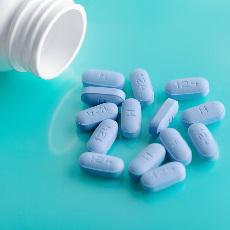
What are PrEP and PEP?
PrEP and PEP are medicines to prevent HIV. Each type is used in a different situation:
- PrEP stands for pre-exposure prophylaxis. It is for people who don’t already have HIV but are at very high risk of getting it. PrEP is daily medicine that can reduce this risk. With PrEP, if you do get exposed to HIV, the medicine can stop HIV from taking hold and spreading throughout your body.
- PEP stands for post-exposure prophylaxis. PEP is for people who have possibly been exposed to HIV. It is only for emergency situations. PEP must be started within 72 hours after a possible exposure to HIV.
PrEP (pre-exposure prophylaxis)
Who should consider taking PrEP?
PrEP is for people without HIV who are at very high risk for getting it. This includes:
Gay/bisexual men who
- Have an HIV-positive partner
- Have multiple partners, a partner with multiple partners, or a partner whose HIV status is unknown and
Heterosexual men and women who
- Have an HIV-positive partner
- Have multiple partners, a partner with multiple partners, or a partner whose HIV status is unknown and
- Don’t always use a condom when having sex with people who inject drugs OR
- Don’t always use a condom when having sex with bisexual men
People who inject drugs and
- Share needles or other equipment to inject drugs OR
- Are at risk for getting HIV from sex
If you have a partner who is HIV-positive and are considering getting pregnant, talk to your health care provider about PrEP. Taking it may help protect you and your baby from getting HIV infection while you try to get pregnant, during pregnancy, or while breastfeeding.
How well does PrEP work?
PrEP is very effective when you take it every day. It reduces the risk of getting HIV from sex by more than 90 percent. In people who inject drugs, it reduces the risk of HIV by more than 70 percent. PrEP is much less effective if you do not take it consistently.
PrEP does not protect against other STDs, so you should still use condoms every time you have sex.
You must have an HIV test every 3 months while taking PrEP, so you’ll have regular follow-up visits with your health care provider. If you are having trouble taking PrEP every day or if you want to stop taking PrEP, talk to your health care provider.
Does PrEP cause side effects?
Some people taking PrEP may have side effects, like nausea. The side effects are usually not serious and often get better over time. If you are taking PrEP, tell your health care provider if you have a side effect that bothers you or that does not go away.
PEP (post-exposure prophylaxis)
Who should consider taking PEP)?
If you are HIV-negative and you think you may have been recently exposed to HIV, contact your health care provider immediately or go to an emergency room right away.
You may be prescribed PEP if you are HIV negative or don’t know your HIV status, and in the last 72 hours you
- Think you may have been exposed to HIV during sex,
- Shared needles or drug preparation equipment, OR
- Were sexually assaulted
Your health care provider or emergency room doctor will help to decide whether PEP is right for you.
PEP may also be given to a health care worker after a possible exposure to HIV at work, for example, from a needlestick injury.
When should I start PEP and how long do I need to take it?
PEP must be started within 72 hours (3 days) after a possible exposure to HIV. The sooner you start it, the better; every hour counts.
You need to take the PEP medicines every day for 28 days. You will have to see your health care provider at certain times during and after taking the PEP, so you can have an HIV screening test and other testing.
Does PEP cause side effects?
Some people taking PEP may have side effects, like nausea. The side effects are usually not serious and often get better over time. If you are taking PEP, tell your health care provider if you have a side effect that bothers you or that does not go away.
PEP medicines may also interact with other medicines that a person is taking (called a drug interaction). So it’s important to tell your health care provider about any other medicines that you take.
Can I take PEP every time I have unprotected sex?
PEP is only for emergency situations. It is not the right choice for people who may be exposed to HIV frequently – for example, if you often have sex without a condom with a partner who is HIV-positive. In that case, you should talk to your health care provider about whether PrEP (pre-exposure prophylaxis) would be right for you.
